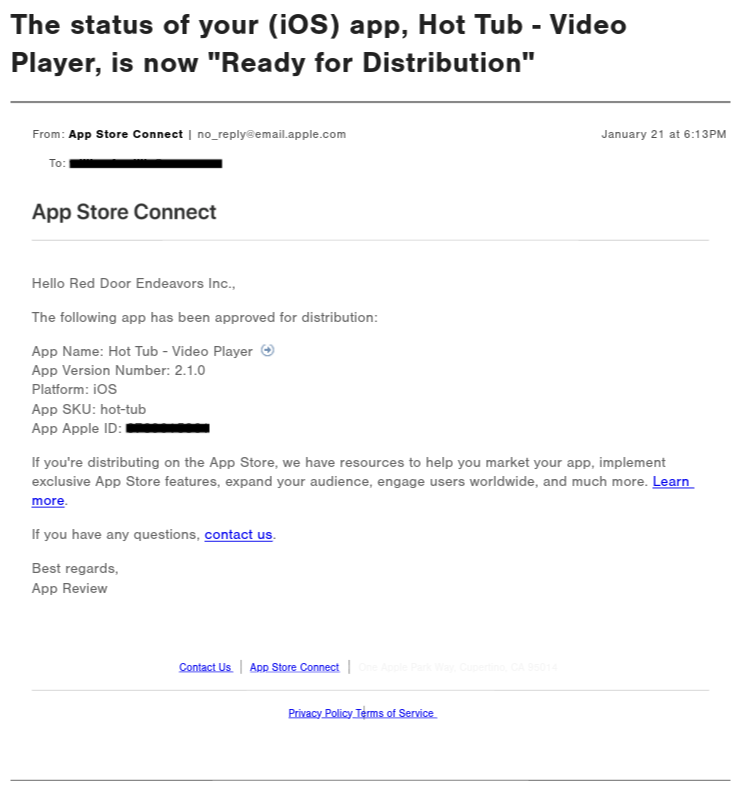LOS ANGELES—A small video player application called “Hot Tub” has gone viral. The reason for the rampant buzz is that it is the very first iOS-native iPhone application that allow users the ability to view online porn on platforms like Pornhub, xHamster, Xvideos, and Xnxx.
This news is significant because Apple is notorious for strictly enforcing a firewall for the types of mobile apps available on the Apple App Store. However, due to regulatory interventions in the European Union—namely the Digital Markets Act (DMA)—the weakness in that firewall can finally be exploited.
According to TechCrunch and related tech industry coverage, Hot Tub can operate on iOS only due to the regulations promulgated by the DMA.
Officially titled Regulation (EU) 2022/1925, it concerns “contestable and fair markets in the digital sector.”
The law attempts to break up the monopolization of the technology space in the European Union to ensure competition. To do this, EU regulators are tasked with identifying companies classified as “gatekeepers.”
The companies classified as gatekeepers are almost all U.S.-based, including Alphabet, Amazon, Meta, Microsoft and Apple. ByteDance, based in China, is also on the list. The European Commission states that these six companies own and operate 22 popular online services that are identified as “core platform services.”
The Apple App Store, classified by the law as “online intermediation services,” and operating systems like iOS, iPadOS, and macOS are covered by the DMA.
Under the law, Apple is prohibited from blocking small developers from publishing applications in the Apple ecosystem, including age-restricted apps like Hot Tub.
Will Smillie, who develops Hot Tub and goes by the online handle c1d3r, saw an opportunity to release the app in the European market. He maintains the app is “approved.”
Because of the DMA, alternative app stores, like the AltStore, are allowed to operate alongside the official Apple App Store. The team behind the AltStore announced that Smillie’s app would be released on their store, and it went viral.
“Hot Tub aims to offer a better viewing experience for adult content,” Smillie told AVN. He explained the third-party app serves as an iOS native top-level wrapper to experience the top adult tube platforms owned and operated by the major companies that own those websites, including Aylo’s Pornhub and Hammy Media’s xHamster.
“We have been approved for distribution within the laws of the DMA and are completely compliant as it relates to those things, along with AltStore and Apple’s … notarization process,” explained Smillie. He highlights the issue associated with the controversy around the Hot Tub app being available to end users in a closed operating system.
Amid the popularity of Hot Tub and recent news coverage, Apple’s senior leadership aggressively disavowed the claim that the app is “approved.” Apple did not return AVN’s requests for comment by post time, but a statement from an Apple spokesperson was sent to several mainstream news outlets in the days before.
“We are deeply concerned about the safety risks that hardcore porn apps of this type create for EU users, especially kids,” reads Apple’s statement. “This app and others like it will undermine consumer trust and confidence in our ecosystem that we have worked for more than a decade to make the best in the world.”
The statement adds, “Contrary to the false statements made by the marketplace developer, we certainly do not approve of this app and would never offer it in our App Store.” Instead, the statement blames the European Commission and regulators for allowing the Hot Tub app to be distributed through third-party app stores like AltStore or Epic.
Apple remarks, “[AltStore] and Epic … may not share our concerns for user safety.” Epic Games, the firm that publishes the popular battle royale shooting game “Fortnite,” quickly replied to the accusation by Apple by first denying that Hot Tub is available on the Epic Store and, second, criticizing the literal gatekeeping done by Apple on iOS.
“This isn’t how platforms should work: on Windows, Mac, and Linux, developers can make and release apps without the platform maker adding junk fees and rendering moral judgments on their decisions,” argues Tim Sweeney, CEO and founder of Epic Games, on X. “On iOS, Apple forces its processes on developers against their wishes.”
Sweeney’s observations are noteworthy, given the fraught relationship between Apple and Epic over the monopolization of ecosystem access that ultimately blocks all independent developers, regardless if the app is a popular battle royale game or an ad-free porn-watching experience that integrates adult tube sites into one place.
“The real issue here seems to be [a] market monopoly, not pornography,” Alessandro Polidoro told AVN. Polidoro is an attorney based in Berlin, Germany, and coordinator for the Digital Intimacy Coalition, a group of experts and civil society organizations advocating for sex workers’ rights and sexual expression on the internet. (Note that AVN has previously covered Polidoro’s work when he helmed a campaign to press the EU business units of Aylo, the parent of Pornhub, to follow the GDPR data regulation.)
“Apple has used its App Store to act as the gatekeeper of the iOS app marketplace for far too long, and the EU Digital Markets Act is here to put an end to this,” Polidoro explained. “Imagine being unable to use the software you want just because the company that sold you the device disapproves. That would be absurd, right?”
Apple still offers applications on its marketplace, like X and Reddit, which openly allow nudity, contradicting its moral stance against applications like Hot Tub.
“Apple has a long-standing position against porn apps and adult content dating back to Steve Jobs,” said Smillie.
He refers to the sentiment the late Apple founder and long-serving CEO instilled in the company. In 2010, tech news outlets published leaked email exchanges featuring Jobs telling someone that he views Apple as a “moral police.”
Jobs famously said, “We do believe we have a moral responsibility to keep porn off the iPhone,” and “Folks who want porn can buy … [an] Android phone.” Ironically, years after Jobs’ death, Apple chief executive Tim Cook said that he doesn’t care if iPhone users watch porn on the devices.
The Hot Tub row suggests substantial internal inconsistencies, including whether Hot Tub is “approved.”
“They own and operate their first-party app store, and that’s their prerogative,” concluded Smillie, adding, “We’re glad to see more official distribution channels opening up thanks to the EU regulation.” Smillie also shared an approval document from Apple confirming Hot Tub was notarized and approved for distribution.
The email document below features a prompt from an Apple.com email address sent to Smillie’s company, Red Door Endeavors Inc., confirming that Hot Tub passed Apple’s app review processes and is certified for distribution to iOS users. But the document doesn’t explicitly permit Hot Tub to be distributed through the Apple App Store.

According to documentation for developers, Apple’s App Review process deals with apps submitted for distribution on the app store or through an alternative means. Since the European Union allows for alternative marketplaces in the iOS ecosystem operating in the EU, apps submitting to app review simply need notarization. In the Apple App Review team’s eyes, an app approved through notarization still must meet basic security and functionality checks and requires these apps to follow all local laws.
“Your representation of yourself, your business, and your offerings on the App Store or alternative app marketplaces must be accurate,” reads the documentation by Apple.
It adds, “[the] information you provide must be truthful, relevant, and up-to-date so that Apple and customers understand who they are engaging with and can contact you regarding any issues.” For Apple to claim that the Hot Tub app and apps like it are potential cybersecurity risks to iOS users is misleading but also imbalanced.
The team behind AltStore saw the controversy surrounding Apple’s sudden opposition to what appears to be an otherwise approved iOS app.
Developers Riley Testut and Shane Gill launched AltStore amid the Digital Markets Act. Based in Dallas, Texas, they teamed up to build an alternative marketplace app for indie developers and app publishers who don’t want to be subject to the invasive constraints of the closed Apple ecosystem.
AltStore was born as an iOS sideloading solution. Sideloading requires installing IPA files that are not found in the App Store. This is often done using Xcode, an integrated development environment for iOS and macOS app development, or Cydia, one of the most secure solutions for jailbreaking and installing prohibited software on iOS devices.
Apple still restricts sideloading to app development and testing unless the device is jailbroken. The restrictions are the case even when the sideloading is secure. Digital Markets Act regulations allowed Testut and Gill to further develop AltStore into one of the leading third-party app stores in the space, hosting apps like Hot Tub.
“I think the majority of the controversy is definitely the fact that Apple said, ‘We don’t like this app.’ I think that was, really, the big controversy—literally the fact there is a porn app,” said Testut in a phone interview with AVN.
Testut was joined on the call by his business partner, Gill, who added they both encourage developers working on sex-based projects to consider AltStore as a platform to distribute their applications and content. Both confirmed they’re donating earnings from their Patreon page to the Trevor Project and the Red Umbrella Fund.
Trevor Project specializes in supporting LGBTQ+ youth with suicide prevention programming. Red Umbrella Fund is a sex workers’ rights group based in the Netherlands.


